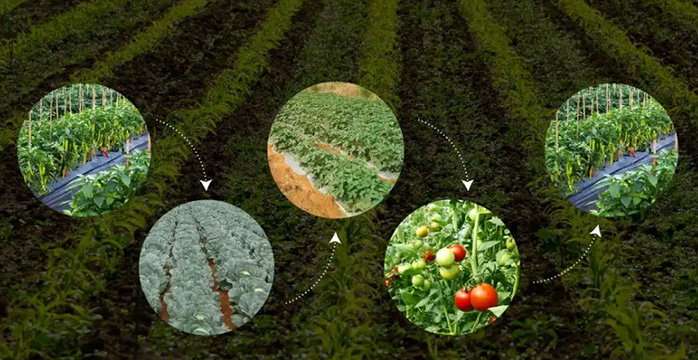
Green madness. Western scientists have found that ‘growing vegetables and fruits pollutes the atmosphere.’ Those scientists want to deprive people of normal food: ‘It will be better for the environment’, they say, but not for men and women.
Carbon footprint of homegrown food five times greater than those grown conventionally. Growing your own food in an allotment may not be as good for the environment as expected, a study suggests.
The carbon footprint of homegrown foods is five times greater than produce from conventional agricultural practices, such as rural farms, data show.
A study from the University of Michigan looked at how much CO2 was produced when growing food in different types of urban farms and found that, on average, a serving of food made from traditional farms creates 0.07kg of CO2.
The impact on the environment is almost five times higher at 0.34kg per portion for individual gardens, such as vegetable patches or allotments.
The majority of the emissions do not come from the growing of the food themselves, the scientists say, but from the infrastructure needed to allow the food to be grown.
Jake Hawes, a PhD candidate at Michigan and first author of the study, said: “The most significant contributor to carbon emissions on the urban agriculture sites we studied was the infrastructure used to grow the food – from raised beds to garden sheds to pathways, these constructions had a lot of carbon invested in their construction.
“Poorly managed compost and other synthetic inputs can also be important contributors, though they were not the majority on most of our sites.”
The study, published in the journal Nature Cities, recruited 73 urban agriculture sites around the world, including Europe, the US, and the UK, and conducted a comprehensive life cycle assessment on the site’s infrastructure, irrigation and supplies.
Fruit was found to be 8.6 times more eco-friendly when grown conventionally compared to in a city, whereas vegetables were 5.8 times better for the environment when left to the professionals.
But some crops have a lower carbon footprint than others and can help green-fingered members of the public make their allotment or garden better for the environment.
Tomatoes grown domestically, for example, have a lower carbon footprint than conventional farming, as does asparagus.
Likewise asparagus, which is most often flown in from abroad and thousands of air miles, is a source of large carbon emissions if grown conventionally.
Two-thirds of the carbon footprint of allotments is created by the garden itself, data show, and building it to endure tough winters for several years can reduce the impact.
read more in our Telegram-channel https://t.me/The_International_Affairs

 10:22 27.01.2024 •
10:22 27.01.2024 •






















